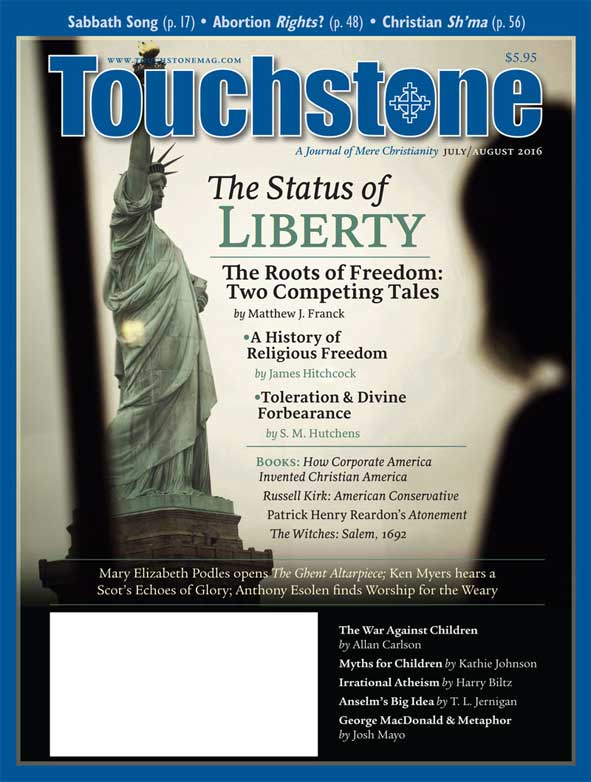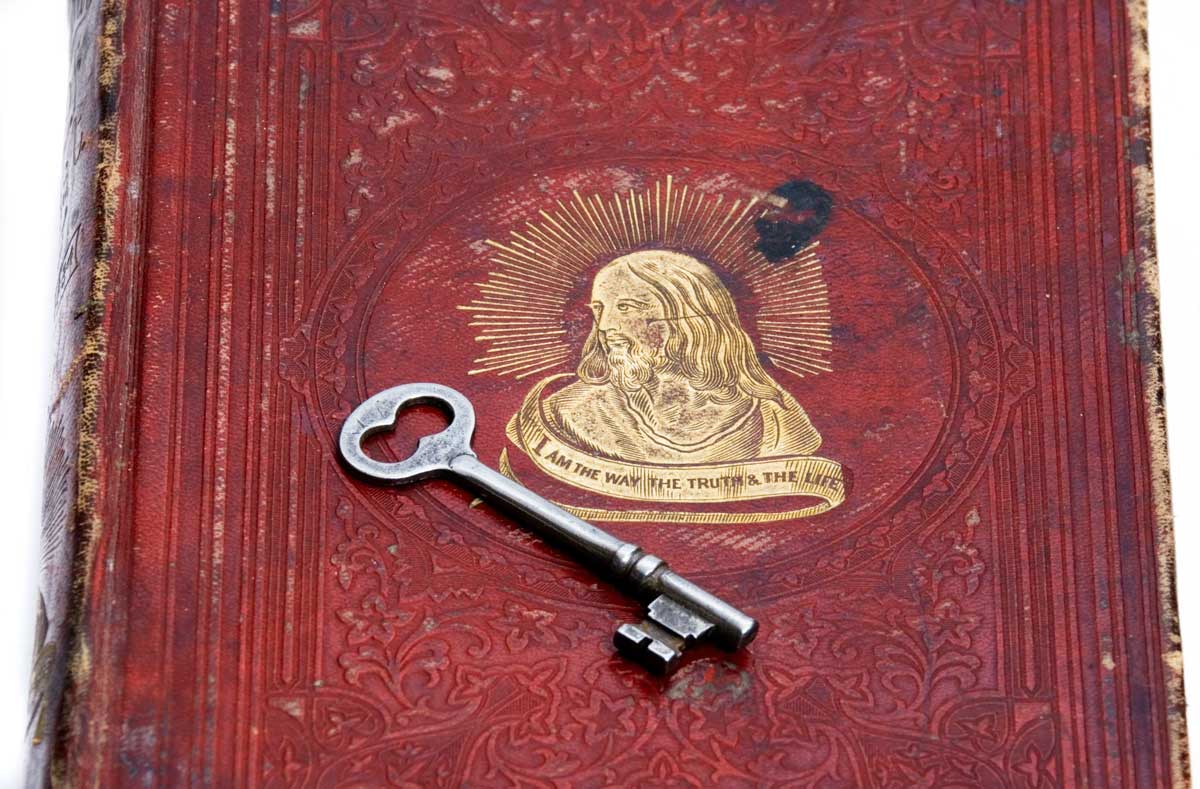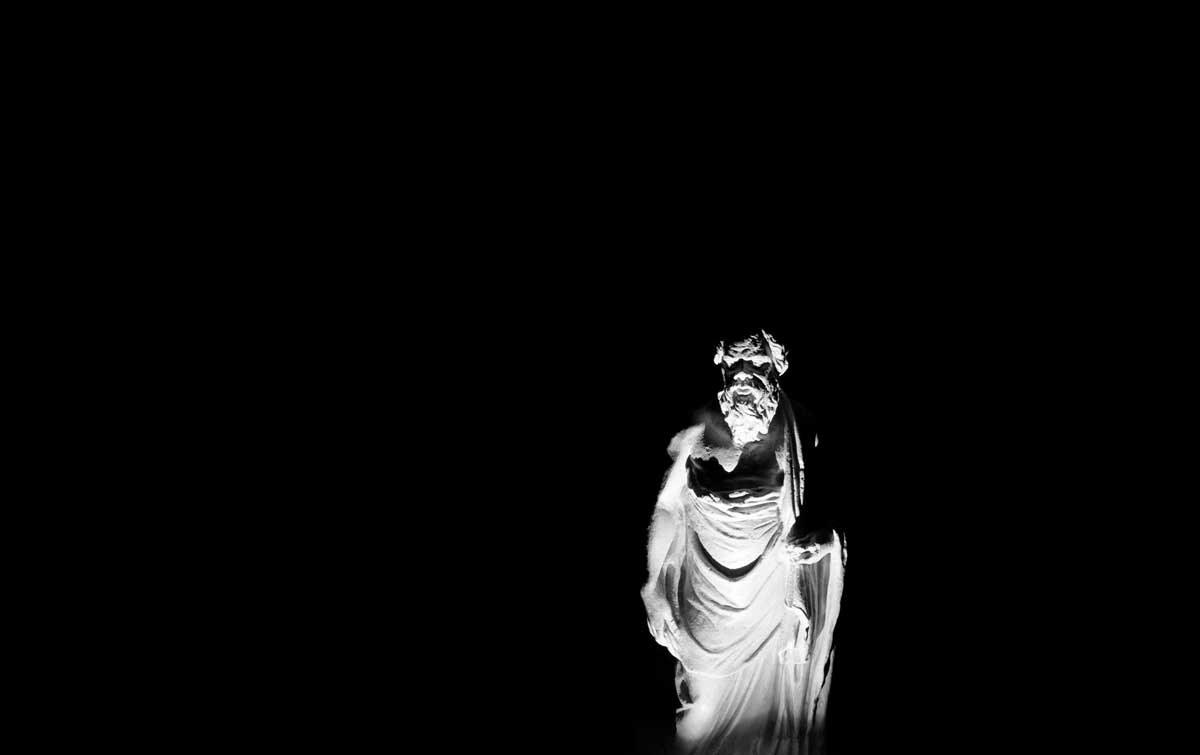Forum: Rejoinder
Purification & Errors
Iappreciate the very thoughtful responses to my essay by James Hitchcock and S. M. Hutchens. The former, in a survey of history few others would be capable of producing so effortlessly and compactly, supports the central point I made. That is, religious freedom as we have come to know it is hard to imagine apart from the inheritance of Christian civilization. The God of Abraham, Isaac, and Jacob, the God of Moses, the God whose Second Person is revealed to be Jesus Christ, is the God in whose image we are made, thus endowing us with an ineradicable dignity as free persons. As Hitchcock remarks more than once, the history of Christian violations of the freedom of religious belief and conscience is best accounted for in political terms, and not in theological ones. What I could little more than merely assert—that the history of religious freedom is a "tale of Christianity purifying itself"—Hitchcock actually shows, with episode after episode.
This is by no means to say that religious freedom is a peculiarly Christian idea, intelligible only within that one religious tradition. On the contrary, religious freedom rests on truths about the human condition that are accessible to all rational persons, whatever their religious beliefs (or lack thereof). But the burden of my argument was that the idea of religious freedom has a historical pedigree more ancient than the secular "Enlightenment," that that pedigree is coterminous with the Christian tradition and has grown out of it, and that therefore it is a fatal error to consider religious freedom as a dispensation of anti-Christian or irreligious modernity.
For his part, Hutchens supports my central argument as well, though not (I think) intentionally. He returns to Locke as though modern ideas of religious freedom owe everything to him and to no one else, but as I argued and as Hitchcock has shown, this is a mistake. Hutchens accuses Locke of heresy, a charge with which I will not quarrel—but a heretic is still a Christian, however wrong he may be. Most importantly, Hutchens gives the following as his "central assertion" in response to my essay: "Any acceptable concept of 'toleration' among Christians is to be placed securely in the context of a teleology in which the sufferance of error when not responded to by the repentance and amendment for which it is granted, is met by condemnation and judgment."
This strikes me as a sound theological principle, however much some people may shrink from it as a harshly unecumenical wooden pew in our softly upholstered age. Hutchens is a Protestant; I am a Catholic. We understand each other perfectly if we greet one another frankly and say that we cannot both be right about where we stand in the divided Body of Christ. That is not the beginning of a political controversy between adversaries but of a religious conversation between friends. For Hutchens never begins to make the case for establishing this theological stance about error, repentance, and amendment as a political principle to be placed in the care of a magistrate wielding the sword of public justice. Hence he makes a kind of category error, of the sort that recurs among the actors in the history that Hitchcock sketches.
I agree with Hutchens that "the vipers are wide awake and biting in this generation." But that is not because, as he suggests, we have made a "fixed right of religious toleration" (I would say freedom, not toleration, but will let that go here). It is because we have misunderstood the meaning, the justification, the purpose, and the history of religious freedom in our law and politics. These are the misunderstandings my essay invited us to begin to overcome. •
Matthew J. Franck is the director of the William E. and Carol G. Simon Center on Religion and the Constitution at the Witherspoon Institute in Princeton, New Jersey.
subscription options
Order
Print/Online Subscription

Get six issues (one year) of Touchstone PLUS full online access including pdf downloads for only $39.95. That's only $3.34 per month!
Order
Online Only
Subscription

Get a one-year full-access subscription to the Touchstone online archives for only $19.95. That's only $1.66 per month!
bulk subscriptions
Order Touchstone subscriptions in bulk and save $10 per sub! Each subscription includes 6 issues of Touchstone plus full online access to touchstonemag.com—including archives, videos, and pdf downloads of recent issues for only $29.95 each! Great for churches or study groups.
Transactions will be processed on a secure server.
more from the online archives
calling all readers
Please Donate
"There are magazines worth reading but few worth saving . . . Touchstone is just such a magazine."
—Alice von Hildebrand
"Here we do not concede one square millimeter of territory to falsehood, folly, contemporary sentimentality, or fashion. We speak the truth, and let God be our judge. . . . Touchstone is the one committedly Christian conservative journal."
—Anthony Esolen, Touchstone senior editor











